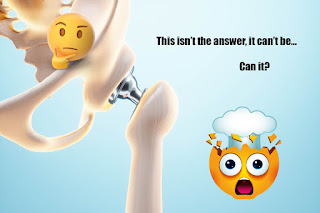Nutrition and Depression: Understanding the Gut-Brain Connection
The saying "you are what you eat" takes on a new meaning when discussing the relationship between nutrition and mental health. With ongoing research into the gut-brain connection, it's becoming clear that what you consume can significantly affect your mental well-being, including symptoms of depression. Here's how:
The Gut-Brain Axis:
- What It Is: The gut-brain axis refers to the biochemical signaling that takes place between the gastrointestinal tract (the gut) and the central nervous system (the brain).
There are quite a few other things that make the gut flora balanced. Lactobacillus rhamnosus (The gut-brain axis: interactions between enteric microbiota, central and enteric nervous systems - PMC, n.d.) was one of the probiotics I've used to fight lactose intolerance. A few days of taking colony-forming numbers of this form reduced my negative reactions to milk products.
(para. 13.)
- Why It Matters: Research shows that an unhealthy gut can negatively affect brain function, including mood regulation, thereby impacting depression.
Nutrients That Affect Mental Health:
1. Omega-3 Fatty Acids:
- Where to Find Them: Fish like salmon, mackerel, and sardines are high in Omega-3s.
- How They Help: These fatty acids are involved in brain cell function and inflammation reduction, both of which are linked to depression.
Additionally, Wang, et al. (2018) wrote a paper describing the benefits of Omega-3s with regard to Alzheimer's. The study was performed on rats, where the correlation was drawn between the use of fats and the healthy growth of neurotransmitters, eyes, and even the "metabolism of neurotransmitters" (para. 1.)
2. Vitamin D:
- Where to Find It: Sunlight exposure, fortified foods, and supplements.
Also, Vitamin D was found to help immune function, and during my treatment of AML, I was guided to take 5000 IU of D3 daily. I've since reduced my intake of Vitamin D3 after asking my doctors if that was ok.
- How It Helps: Vitamin D receptors are found throughout the brain, including areas linked to depression, suggesting its role in mood regulation.
3. Probiotics:
- Where to Find Them: Yogurt, kefir, and fermented foods like sauerkraut and kimchi.
There are also some refrigerated and nonrefrigerated sources of multiple-spectrum probiotics, some of which I've taken before as well. Lactobacillus reuteri normalizes altered fear memory in male Cntnap4 knockout mice - eBioMedicine (n.d.) contains passages regarding the use of the strain and whether or not the mice that were fed a strain of reuteri would resist fear under controlled stress situations. This has also been studied with respect to Autism and fear in regards to fear memory processing (para. 1,2.)
- How They Help: Probiotics can balance gut flora, affecting the gut-brain axis and potentially improving mental health.
4. Antioxidants:
- Where to Find Them: Fruits and vegetables like blueberries, spinach, and broccoli.
Personally, I've long been drawn to the thought of using antioxidants in the form of dark greens, and also powdered supplements of greens. Although I don't enjoy the flavor of that type of supplement. There are some fruit-flavored supplements like Monavie, and Xango, mainly based on Acai berry as the base, I've tried those before, but they are quite expensive in my opinion.
- How They Help: Antioxidants can fight inflammation, a suspected contributor to depression.
5. Folate:
- Where to Find It: Leafy greens, lentils, and fortified cereals.
While taking my chemo for AML and during my recovery, the doctors had me taking folate for protective factors to fight the effects of Prednisone. However, at the moment I'm fighting necrosis of both my femoral head (acetabulum) and may have hip joint replacements soon. The orthopedic surgeon I spent time with just this week had the opinion that the cause of my hip joint issues was the months of Prednisone that I had taken.
- How It Helps: Folate is essential for creating serotonin, a neurotransmitter associated with mood regulation.
Tips for Improving Your Diet:
1. Balanced Meals: Try to have a good mix of protein, healthy fats, and whole grains.
2. Limit Sugar: Excessive sugar intake can lead to mood swings, impacting depression.
3. Stay Hydrated: Dehydration can negatively affect your mood and cognitive function.
4. Consult a Professional: If you're considering major dietary changes, it's wise to consult with a healthcare provider or a certified nutritionist.
Water is also a good way to help the quality of sleep, as being even slightly dehydrated will decrease the quality of sleep. In an article, Surprising Ways Your Hydration Level Affects Your Sleep | Sleep Foundation (n.d.) writes that too little or too much water creates "barriers to sleep" (para. 3.)
### A Word of Caution:
While nutritional changes can be a powerful tool for managing depression symptoms, they should not replace traditional treatments like medication and therapy. Always consult with a healthcare professional to create a comprehensive and personalized treatment plan for depression.
Lactobacillus reuteri normalizes altered fear memory in male Cntnap4 knockout mice - eBioMedicine. (n.d.). Retrieved September 01, 2023 from https://www.thelancet.com/journals/ebiom/article/PIIS2352-3964(22)00505-9/fulltext
Surprising Ways Your Hydration Level Affects Your Sleep | Sleep Foundation. (n.d.). Retrieved September 01, 2023 from https://www.sleepfoundation.org/nutrition/hydration-and-sleep#:~:text=up feeling dehydrated.-,The Relationship Between Hydration and Sleep
The gut-brain axis: Interactions between enteric microbiota, central and enteric nervous systems - PMC. (n.d.). Retrieved September 01, 2023 from https://www.ncbi.nlm.nih.gov/pmc/articles/PMC4367209/ #:~:text=The gut-brain axis (GBA,microbiota in influencing these interactions


Comments